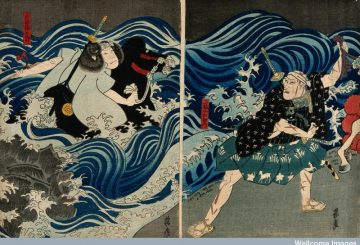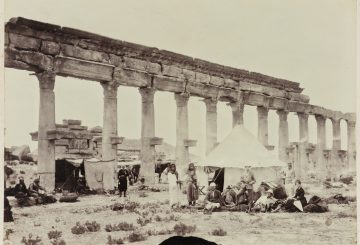It’s a little bit cliché to sum the spent year up but this exercise has the great advantage to learn lessons. I don’t claim to be more wise than other Cultural professionals but my experience and my reflections taught me this year some pieces of information that could be benefit to be shared with you. Two subjects are receiving my attention: the increasing professionalism and Cultural objects (cultural structures, collections, works of art, artists rights) more and more endangered.
About professionalism, I am seeing more and more peers exchanges groups, services companies, new job titles in cultural structures, specialised websites… it’s seems that what already we could observe these last 5-6 years is finally defined: Culture is now no more a field of expressions but an entertainment industry. I’m not crying about this fact (I let to my reader the choice to decide if it is, or not, a good thing) but I try to point out how we arrive at this global professionalism, from the polyvalent man-band/novelties tracker to the specialised worker. If we can only be happy to have professionals, the question of their formation and their quality is a connected question. However, one point is my concern about this ultra-professionalism: maybe more than else field of activity, Culture needs to have professionals polyvalent or, at least, aware of what surround them (inside the structure, the profession, in the urban (or not) area, …) but how it could be still possible when worker is no more else than a cogwheel in a big machine?
Besides, we’ve seen this year again so many destructions and instrumentation of Culture. To cite only four examples, think about the drift of a private stakeholders in a museum (Delaware Art Museum) or careless council (Sekhemka statue in the Northampton Museums) or closure endangered collections (Wedgwood collections) or museum (Detroit Art Institute or this other article). All these sad ridiculous events were possible because of the lack of money, because of the lack of public interest and lack of art/history education.
I could finish here my editorial article with pessimist words about future but… it would be too easy… it would be forgotten another way which is developing without any interruption these last years: hacking!
Use hacking in Culture?! No, I didn’t turn crazy. Yes, it’s not new (e.g. Hack the Barbican or Museomix).
Hacking doesn’t consist only to a young man with glasses and coding all day long! Hacking is neither only let “new” actors imaging in a museum, it’s even not only a marketing/communication solution. Hacking can be (even, has to be, in my opinion) a way of thinking, creating and acting. Of course for this, digitalisation is a great help: data is more and more in the core of our daily life and technologies offer solutions relevant and efficient. But hacking is not only a digital solution, all the citizen petitions and mobilisations are a good example, even if I think that comes more under the firemen duty. I don’t think that we are enough strong, at least for the moment, to stop closures, sales or destructions but I’m sure that solutions exist and we’ll find new ones. In contrary of what mainstream industries want to let us believe, we are not only consumers, we are mind mankind! Every day sees new applications, new ideas, discoveries, solutions, creations. To us to enter in this “every day”!
Let’s create! Let’s invent!
Let’s hack this Culture more and more trapped!*
*One of our 2015 resolution! 😉



